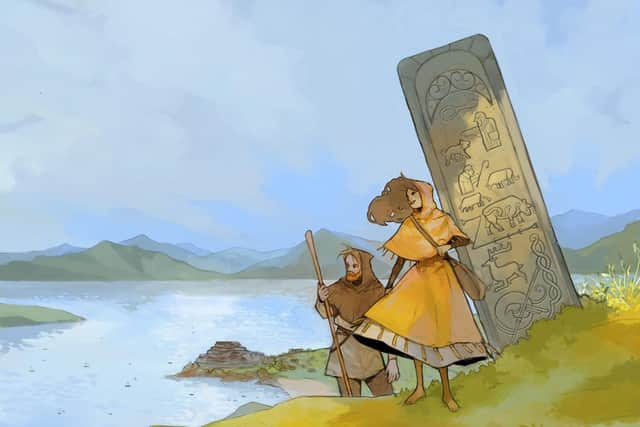Why Scotland's heritage risks being just a thing of the past for Generation Z
New research conducted for Historic Environment Scotland (HES) found just a third of those aged between 16 and 24 believe the country’s heritage should be preserved to save it from being being lost over time.
While 76 per cent of the age group said heritage was important in some way, one in five (21 per cent) said it was not particularly important (16.5%) or not important at all (4.46%).
Advertisement
Hide AdAdvertisement
Hide AdBy comparison, 91 per cent of both the Baby Boomer generation (those aged between 55 and 74) and Generation X (those between 40 and 54) said Scotland’s heritage was important to them.


The findings come as HES consults on its new strategy, which will steer the priorities of the public body over the next five years.
Adam Jackson, head of policy at HES, said there was "more to do” to connect young people to the country’s heritage given they would be the generation supporting the sector in the future.
He said: “We are not going to have a thriving historic environment or heritage sector unless actually we have children and young people invested in them as early as possible. They go on obviously and grow up and become the future employees or members of HES and visit the sites. I think we need to do more there.
“We do recognise young people are an important audience for us now and for the future and we are looking at ways we can involve them more closely."
The research, which involved 1,000 people, comes after the launch of HES’s youth strategy in November last year, which followed a 24-month collaboration with young people on the HistoricScot Youth Forum.
That research found 82 per cent were interested in visiting historic sites, but those who reported no interest in the attractions said they found them “boring” or they had to travel too far to get there. An Instagram poll found 32 per cent of young people didn’t feel a connection to historic places, but the history of marginalised groups, such as women or the LGBT community, had a stronger pull.
Meanwhile, 62 per cent said they had not done anything at school about HES or the historic environment.
Advertisement
Hide AdAdvertisement
Hide AdJackson said there was potential for HES and the broader sector to work more closely with schools.
“It needs to be more than just finding neat ways for people to engage, but actually involving young people more directly in the co-design or co-production,” he said. “They know what they like, they have a handle on technology.
“There are successful projects that show a way forward where real Scottish environment has been used in the gaming industry or as a backdrop to the fun stuff that they might enjoy doing."
Sites including Forth Bridges and Dunnottar Castle have appeared in video games in recent times. Survival game Skye is set on the island during the Viking period. Meanwhile, the Pictish period will feature in Carved in Stone, a table-top role playing game, following a collaboration between archaeologists and Edinburgh game design company Dungeons on a Dime.
Kirsten Urquhart, chief executive of Young Scot said: “The forum’s overall vision for heritage is that it’s accessible to everyone, and believe this can be achieved through co-creation, sincerity, accountability, adaptability, and creativity.”
Comments
Want to join the conversation? Please or to comment on this article.